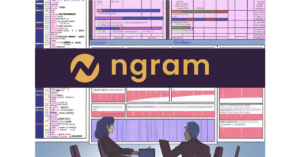[ad_1]
In recent years, there has been a rapid surge in the adoption of smart home devices. These devices connect to the internet and can be controlled remotely using a smartphone or a voice command. The convenience and efficiency that smart devices bring to our homes are undeniable. However, with advancements in natural language processing (NLP), these devices are now capable of revolutionizing our homes in ways we couldn’t have imagined before.
Natural language processing is a branch of artificial intelligence that focuses on the interaction between computers and human language. It enables devices to understand, interpret, and respond to natural language commands. This means that instead of just giving simple instructions like turning off the lights, we can now have conversations with our smart devices, making them more intuitive and human-like.
One area where NLP-powered smart devices have made a significant impact is in home security. Traditional security systems would often require complex codes or smartphone apps to be controlled. With NLP, you can now simply ask your device to lock or unlock doors, arm or disarm the security system, or even give access to specific people. This functionality not only enhances the security of your home but also makes it more user-friendly, especially for older adults or those with limited mobility.
Another area where NLP is revolutionizing our homes is in home automation. With NLP-powered smart devices, you can simply use your voice to control various aspects of your home, such as adjusting the temperature, turning on or off the lights, or even playing music. This hands-free control simplifies daily tasks and allows for greater accessibility and convenience.
Moreover, NLP-powered devices can also be integrated with other smart appliances in your home. For example, you can ask your smart assistant to start the coffee machine or preheat the oven, making your mornings more efficient and hassle-free. Additionally, these devices can learn from your preferences and adapt to your routines, bringing a personalized touch to your home automation.
One of the most exciting advancements in NLP-powered smart devices is their ability to provide valuable information and assistance. These devices can leverage their language processing capabilities to answer questions, provide weather updates, search the internet, or even engage in casual conversation. They can act as personal assistants, helping you with your daily tasks, providing recommendations, or even reminding you of important events.
Beyond convenience, NLP-powered smart devices can also have a positive impact on energy consumption in our homes. By monitoring and analyzing our habits and routines, these devices can suggest energy-saving strategies or alert us to any unnecessary energy usage. For example, they can remind us to turn off lights or appliances when not in use, adjust the thermostat based on occupancy, or even suggest alternative energy sources.
As NLP continues to evolve and improve, we can expect even more innovative applications in our homes. With enhanced language processing capabilities, smart devices will become even more intuitive, enabling more complex commands and more natural interactions. We can envision a future where our homes will not only respond to our commands but engage in meaningful conversations, assisting us in various aspects of our lives.
In conclusion, the integration of natural language processing has revolutionized our homes and the way we interact with smart devices. From improved security to enhanced automation and personalized assistance, NLP-powered devices have made our lives more convenient, efficient, and enjoyable. As the technology continues to advance, we can look forward to a future where our homes truly become intelligent, responsive, and intuitive, providing us with unprecedented levels of comfort and convenience.
[ad_2]



